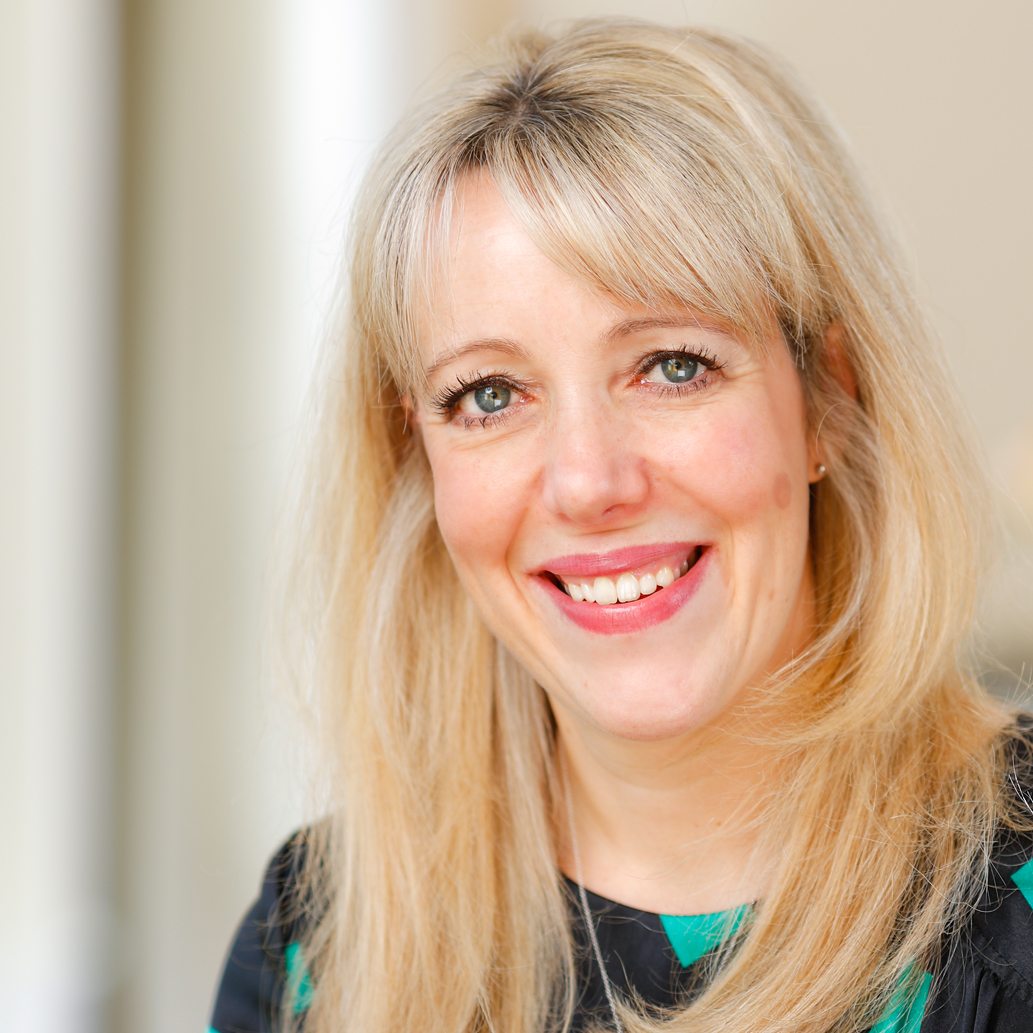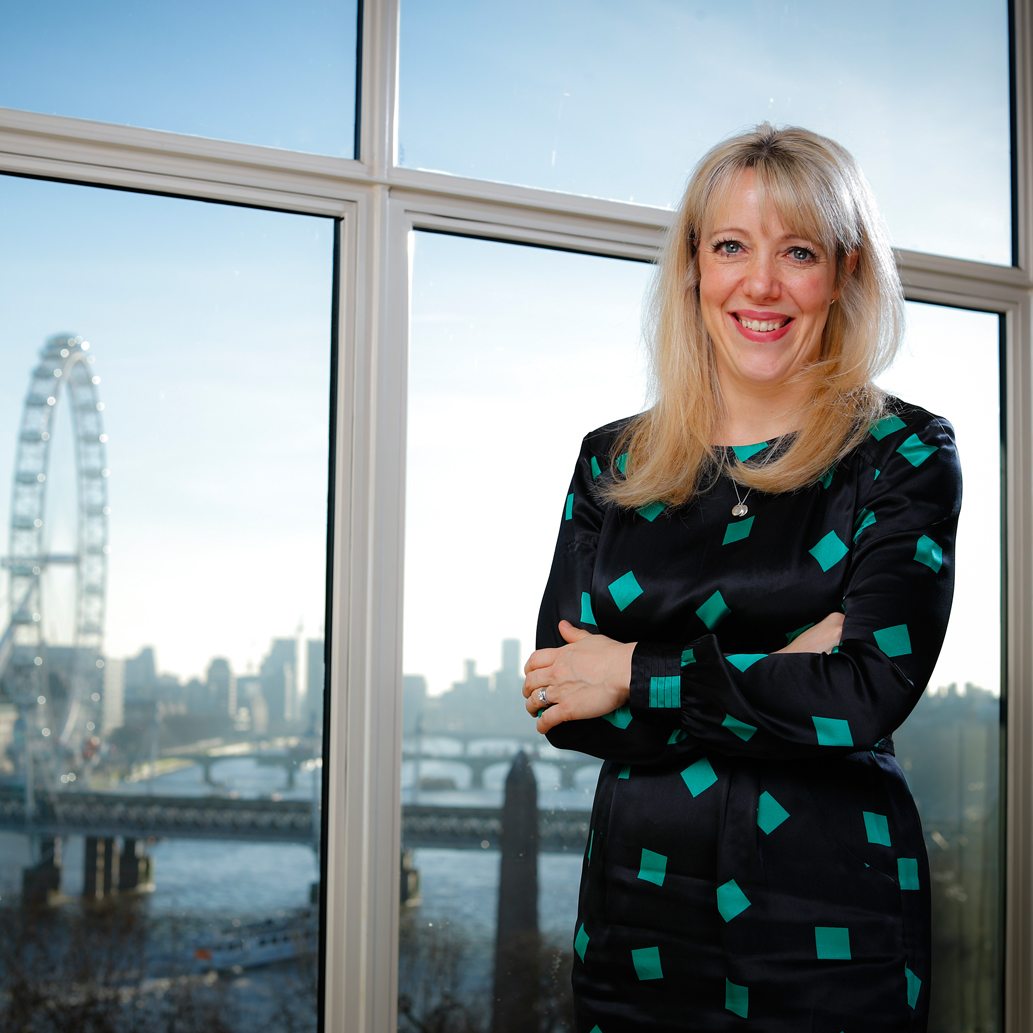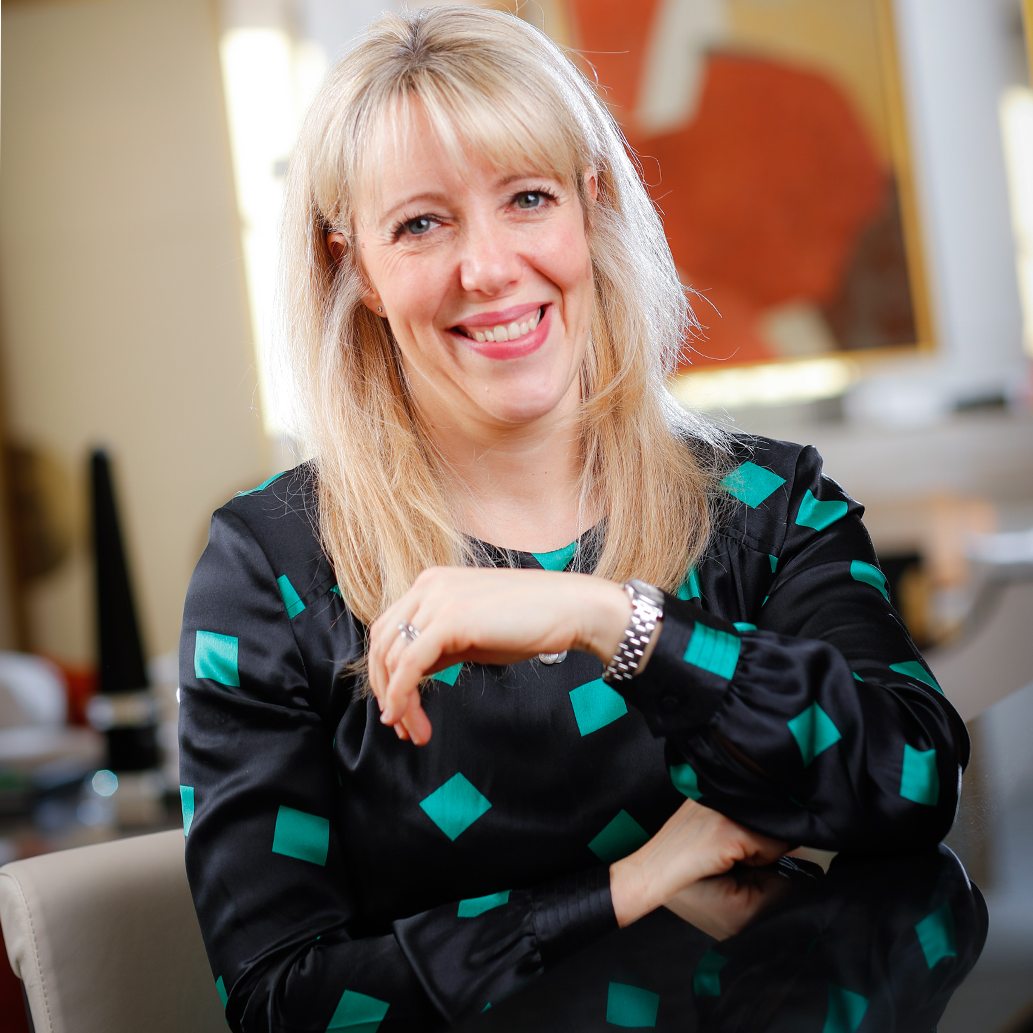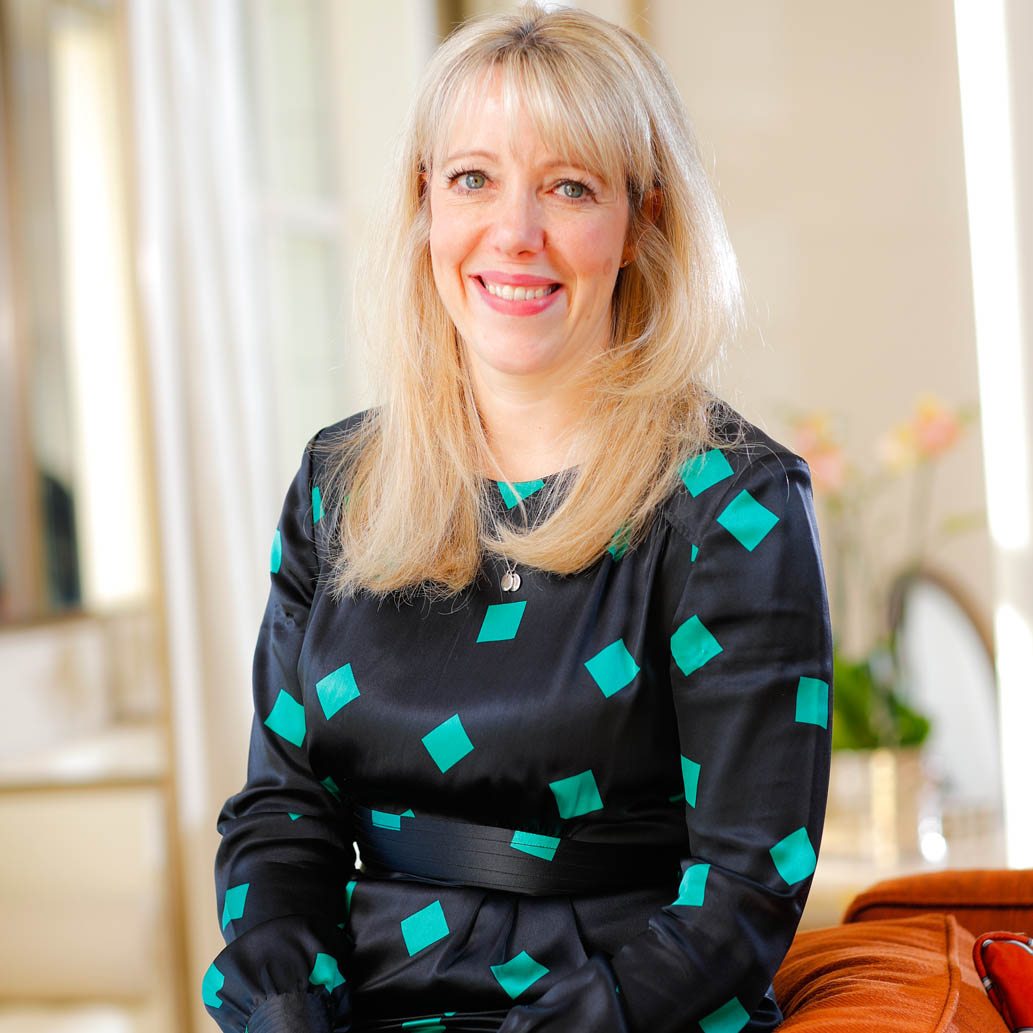Emma, tell us about your early life and why decided on a career in HR.
I didn’t do too well with my A Levels and, when the time came for me to decide what I wanted to do, I had no clue whatsoever. I had a part-time job in a local pizza restaurant that I loved and it was my stepmother who said, “let’s get some University applications for a qualification in Hospitality” – a potential career that didn’t rely on stellar A-level results, of course. We looked for a higher national diploma and I had an offer from what was then the University of North London, for a two-year, higher national diploma, with six months’ placement. I loved my University experience and when it came to finding a placement, I passed the interview to work at Claridges’ in Bond Street, as a Trainee Floor Housekeeper. I remember so clearly, walking into the stunning, black and white marble front hall, terrified – I was going to be living there, right at the top of the hotel, sharing a room with another girl on her placement also. We are still friends today, many years later, with families of our own. Claridges’ made a huge impact on me personally and professionally – it set me on what has so far been a 25 year journey in luxury hospitality. The guests at Claridges’ ranged from Hollywood celebrities to European royalty, and although as a Chambermaid, I left a lot to be desired, I immediately clicked with the luxury hotel environment, the attention-to-detail, the unwavering guest service. I could really sense and empathise with what it all represented, and I felt a career calling, if not in housekeeping, then somewhere within this environment. It was hard work of course, but it really instilled a discipline in me which, to that point, was unrealised. I learnt about time management, attention-to-detail and, significantly, teamwork. I went back to university to complete my qualification and subsequently, on my graduation, had a job offer from Claridges’. I returned and fulfilled a different role, learning about other aspects of luxury hotels and, after some time, I decided I wanted to pursue an international career within this environment. I looked to join a hotel company that operated internationally and joined the Forte Crest in Regents Park, working in a supervisory role in the bar and restaurant, and it was here that I had my first real experience of working with people and I loved it. Obviously, by luck rather than judgement, this was something that I was really engaged with, and my manager suggested that I consider what was then called personnel as a potential career path. As luck would have it, a friend of mine called and said that The Savoy were looking for a personnel administrator. I sent my CV, came for the interview and I remember being interviewed in a huge imposing office. The role was explained simply – I was told that my job would be “to look after the employees as well as the employees looked after the guests”. That was a long time ago now and it’s a mantra that I still say to potential new employees. So I came here, to The Savoy Hotel as the Personnel Administrator. My rise up the HR ladder was pretty rapid, and every year I was promoted to the next rung up. We had a huge labour turnover – way over 50 percent – and I was eventually promoted to Assistant HR Manager with the massive responsibility for training right across the business. One project I remember well was working with the hotel manager for six months to get the Investors in People Award for the Savoy. That was a great success and a real platform raiser, in terms of The Savoy as an employer, setting the pace in a sector which was not particularly lauded as a great employer of people. I recall that working closely with the hotel manager gave me an amazing insight into how such an organisation operates.
Time passed, and I began to think what my next career move might be and, as my original aspiration was “international”, I decided to look at opportunities abroad. Luck called again and I applied for a post at the Four Seasons in New York as Training Manager. I made sure they knew I was extremely keen, and they were so warming and engaging – I think my enthusiasm won them over – and off I went. Ambition really numbed the pain of being away from my family, but on one of my returns back home, for a family wedding, I emotionally said to my Dad that I wanted to come home. He said, “Emma, every day is not going to be a family wedding, you need to stay in New York and think about your career – you cannot come back yet”! As often was the case with me, I didn’t listen and I truly was extremely homesick. However, I was also still ambitious and rather naively thought I was ready for my first HR director role. Of course, in reality I wasn’t ready, but I’d clearly gained some useful experience and had a pretty decent looking CV, as I was invited to apply for the HR director position at Brown’s Hotel. They invited me to stay at the hotel as part of the interview process so I could experience the service. I will never forget the fire alarm went off at 3:00am. There I stood in reception with my potential new colleagues, with no make-up, hair leaving a lot to be desired, in a lovely hotel bathrobe. If that wasn’t going to put them off, nothing would it seemed, and I succeeded in gaining my first HR Director role at Brown’s at the tender age of 26.
I started my tenure at Brown’s in traumatic times. The UK was in the grip of the foot and mouth epidemic, which of course was devastating to the agricultural sector and rural communities, but also rippled out and impacted far and wide, and hospitality and tourism was hit hard. At around the same time, the world was sent reeling by 9/11, which again crushed our sector. The consequences were felt immediately, and I had to learn quickly how to manage a business in downturn for what turned out to be a long duration. It was my responsibility to make the redundancies in these desperately difficult times, in a business where the employees were so proud to work and were like family to one another. Eventually of course, the resilience of the human spirit overcomes, and it came to be a really rewarding two years at Brown’s. Then unexpectedly, I had another call from Four Seasons, who were looking for an Assistant HR Director. The appeal here being that while Brown’s was small and intimate, this was a position in an international organisation. I was successful and worked with Catriona Eldemery, a wonderfully strong influence and powerhouse HR Director, and I learnt so much, filling in the undoubted blanks that were there. Then one day, Catriona called me into her office to tell me she was heading to Boston for another opportunity with Four Seasons, and urged me to apply for the HR Director role. I didn’t think I was ready, they didn’t think I was ready, but they gave me the role, which took me on such a journey of learning and development for ten years. It is those years with Four Seasons that have taught me to be the HR Director that I am today. I am so proud of my time with Four Seasons – a truly extraordinary hotel company. During this decade, I met my husband, had my first child, returning early from maternity leave to oversee the HR detail as the Four Seasons closed for refurbishment, and began preparing for the re-opening of the new Four Seasons, and almost a fresh new start, where I could devise and introduce my own HR strategy for the first time. During this period, I had my second child, took my full maternity leave this time and the new hotel was open when I returned. Soon after, I received a phone call from The Savoy, inviting me to apply for newly-available HR Director role. It wasn’t, however, all plain sailing. I met the then Managing Director Kiaran MacDonald for my interview and it was disastrous, we just started off on the wrong foot and things just went from bad to worse. I called the HR Director and said “I really messed up”. Thankfully, they gave me another go, and this time we clicked and I re-joined The Savoy as Director of HR in 2012, London’s Olympic year.
Had much changed at the Savoy since your first tenure, and what was expected from you as HR Director?
Female Colleagues could now wear trousers! We couldn’t do that when I worked here before – before I left The Savoy I managed to persuade the Managing Director that we needed to allow women to do this and he eventually conceded to me – I was thrilled my legacy was still alive when I returned! It sounds funny, but it said a lot about this very traditional organisation really showing its desire to be a contemporary employer of people, and it was impressed upon me that they were expecting my leadership of HR to carry this torch. For the first time in my career, I really felt as if I was totally prepared and ready for the challenge. But make no bones about it, this was a challenge. There were a lot “top priorities”, but I set about building my HR team, roadtesting what I had learnt at Four Seasons, about recruiting for attitude and, with that installed, we set about policy making, integrating what was right and ethical for the business, and remembering that “people first” mantra I learnt from my first tenure here, and, to my delight, the knowledge I had garnered stood me in good stead. We still had an uncomfortable labour turnover number. Traditionally, this is a sector that doesn’t do attrition well, less still engagement, and it’s those measurements that drove me forward. But you have to work through your department heads and be with the people as well. You are always dancing a fine line all the time in HR. The pressures are very direct – we’re a 24/7 environment, in which you succeed or fail on the basis of guest experience, and it’s making sure everyone is on message all the time. For me, success here is getting to know everybody, so that when you introduce something new, you put your ego aside, and you think about what people want. My time at Four Seasons gave me that lightbulb moment and I brought it here with me to The Savoy – it has stood me in good stead!
You talk of this as a very traditional place, but of course a big part of the appeal of The Savoy is its heritage and history.
Yes of course, and the wonderful and famous people who have stayed as guests, their image and the memory of them – the glamour of that age, in a way somehow still reside here. That glamour is a big part of the appeal. But in context with the modern hotel operation, you have to challenge some traditions that are backward-looking. Our challenge has been to make this a savvy place to attract talent, and however iconic this establishment is, hospitality really does struggle to attract career-minded people. A statistic that might surprise is that “Eighty percent of our staff are millennial and, from that, I drew the correlation with the overriding demographic and the downward trend of the score on engagement. I had to ascertain why this was and fast. It was about the time that there was much discussion about the multi-generational workplace, and in this matrix, millennial simply didn’t feel involved and engaged in what we as an employer represented to them. So I really put a lot of work into making our HR programmes, for want of a better phrase, millennial-friendly. I knew we had to change the way we communicated and a partnership I am particularly proud of at The Savoy is our relationship with LifeWorks. I initially bought in a text messaging service to get employees’ attention, and it worked so well that I knew instantly this was the right track, keeping everyone informed. The litmus test was reminding everybody of the monthly communication meeting, and later that day I was so thrilled to see so many people gathered for it! Encouraged by this, I researched something called LifeWorks, a great platform owned by Work Angel Technology where employees can give and receive peer to peer recognition and rewards. They told me they had never worked in the hotel industry, so this was new territory for them too – but we bought the product and it’s been a massive success. Now we can boast 91 percent highly-engaged employees, and it’s all from working with heads of department to make it happen. On average, every day there are ten peer to peer recognitions on the LifeWorks platform and through the online retail discounts, they have collectively spent over £100,000. We use it as our internal media channel, and our goal is to ensure its full of all the fun things that happen in the daily life of a luxury hotel. It just goes to show if you challenge the status quo and really stay proactive, you can make positive, impactful change for the good.
As you have said, the hospitality sector is not a fixed destination on the career radar for many. Do you think that can be changed, and if so, how?
We’re keenly pursuing ways and means of reaching people through new channels, but we are in the foothills before the mountain. The new generation, our students that we recruit, is our focus, and I make it my business to learn from them, their aspirations and what makes them tick. This year I want to take it to the next level, tackling the recruitment challenges, learning how to compete, not just in our sector, but with others that are far more prevalent on people’s radars. It is a collective responsibility, in which all stakeholders and employers must play a role in. A lot of young people really don’t know what they want to do. I can identify with that, I was there once too! So why not hospitality? As I’ve demonstrated, an exciting and diverse career can be had, whether you have a degree or not, and again it’s that attitude and will to achieve that can drive. I haven’t fully tackled this. We have been running a programme I designed with universities for three years now, offering meaningful and impactful placement opportunities and I’m thinking about school leavers all the time. It’s something I need to get working on, in terms of the links between education and hospitality, which, to be honest, are poor. My experience is that this sector does not have the career respect that it deserves – whereas in the US, which does have a very service-driven culture, hospitality is seen as a credible career. In the UK, there is an Upstairs Downstairs stigma of unsociable, long hours, dealing with difficult guests and so forth. But having spent my whole career in hospitality, I know that the positives far outweigh the negatives, and getting that message into modern culture is a driving goal for me. But my objectives are not just wrapped around the needs and aspirations of the young, sure enough they will age and some will become working parents here, so it’s a case here of accentuating the positives. Yes we are a 24/7 operator, and here lies a great opportunity to provide flexibility that works for all. The bottom line is, what we do in hotels is not complicated, you don’t need a degree or any experience but you do need the right attitude. And really, it’s not just hospitality that’s facing skills shortages, engineering too has its problems, and as to why technology is struggling when every Gen Y and Z is constantly plugged into what technology can provide, is really baffling. As employers, no matter what market we operate in, we have to reach out to schools early, in much more meaningful and impactful ways. In recent years when I have travelled to universities, I have found students studying hospitality-related degrees are told they won’t get a job – the job market is flooded with applicants. So they go on to get a Masters and we find highlyqualified but disillusioned students, who don’t want to contemplate ending up as a server or room attendant and so forth. You don’t need a Masters to have a great job here at The Savoy, which is undoubtably one of the most iconic brands in the world. In terms of tackling attrition, another challenge for us, we just published our 2016 employee turnover and we have dropped five percent, significantly below the London average and something else I believe we can credit, at least in part, to our employee engagement partner. We are also looking at rolling out something called the Colleague Journey. If, for example, we hire a chef with great potential, we can create a potential bespoke career path for them, so that when they are ready for their next move we can sit down and look at the skills needed. I am so excited about this and I think it will bring our retention figures even lower this year.
Looking back on your younger self and your ambitions, that must be really useful knowledge in trying to improve staffing outcomes.
I do have a good story to tell, but I think I was lucky too – I was often in the right place at the right time and I really did cease every opportunity I was given, so when I talk to young people I try to get them to visualise themselves doing this too, and really it goes back to what my parents said all those years ago, that anything is possible. I find that young people don’t engage if they sense platitudes, but they do respond well to credible and authentic advice. I also think hospitality has the capacity to meet the new needs of the young workforce, insomuch as there is always movement and opportunity, and if you have the will there is absolutely no chance of getting in a rut and stagnating. Also, I think the younger generations are really switched on to things like entertaining and good food, you only have to see the success and number of celebrity chefs and TV programmes for that. But I also think that, as leaders, we have an important responsibility to be the catalysts for making sure that great people have fantastic experiences and careers. I had the benefit of somebody taking a risk on me, and I feel compelled to pay that back.












